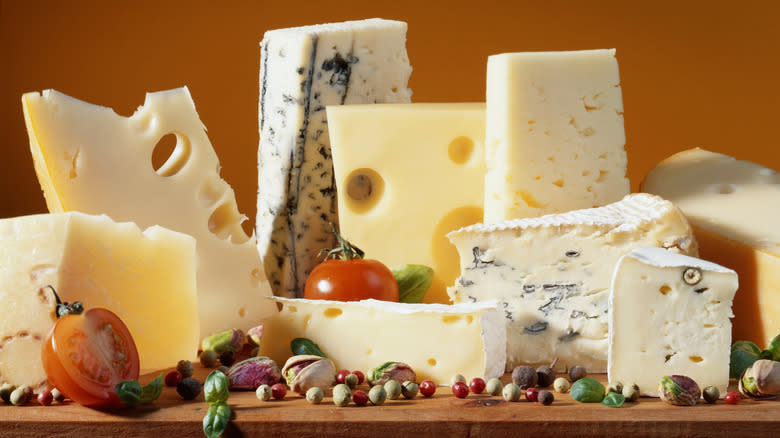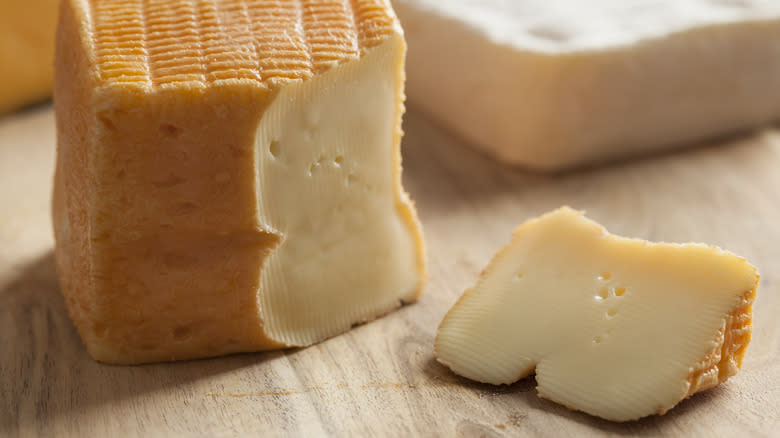The Science Behind Why Some Cheeses Are Oh So Smelly

Cheese is one of those wonders of human creation that seemingly makes any dish better, not to mention is incredibly poppable on its own. It's the basis of wonderful dishes like fondue, raclette, and poutine. Some people claim you're not supposed to pair it with seafood; then explain the wonder that is lobster mac and cheese. Checkmate, anti-cheesians.
But apart from its deliciousness, cheese often has another distinctive quality: its smell. Bad-smelling food is something humans generally instinctively avoid, yet cheese seems to be an exception. But why does cheese smell like that in the first place? A few different things can affect a cheese's smell -- like how it's aged and washed -- but the primary culprit here is bacteria. It doesn't mean stinky cheese has gone bad; it just means the bacteria deliberately introduced to make the cheese in the first place might be producing a particularly funky smell.
Read more: The Most Beloved Products At Aldi, According To Shoppers
The Main Reason For Cheese Smell Is Bacterial Starter Culture

In order to understand why some cheeses smell more than others, it's important to know how cheese is made. There are several steps to the cheesemaking process, but the most important one for the purposes of smell happens right at the beginning when a starter culture of bacteria is added to milk, breaking the milk sugars (lactose) into lactic acid. There are several steps in the cheesemaking process involving the addition of an enzyme called rennet and the draining of milk liquids called whey, but this first step is what matters most for cheese smell.
As bacteria are wont to do, they consume milk sugars for energy and, in the process, produce different types of gas. What kind depends on the bacteria itself. This is why certain cheese smells more than others: Certain bacteria produce worse-smelling gas. For example, Limburger may be the best-known type of smelly cheese because it makes use of a Brevibacterium linens starter culture. Brevibacterium linens are also the bacteria associated with human body odor, which is why many people think Limburger smells like feet or armpits.
There Are A Couple Other Factors That Can Influence Cheese Smell

That being said, there are a couple of other steps that take place much later on that can potentially make cheese smell funkier. Generally, cheese is aged (if it isn't, that's where cheese curds come from) to allow its flavors to deepen over time. While aging doesn't give cheese a smell on its own, it can intensify its existing smell when it's aged longer.
The other process that can influence a cheese's smell is washing. As cheeses ripen, the rinds will sometimes be washed with different liquids (beer, brandy, port, or salt water) to keep them moist. As the cheeses are repeatedly washed over extended periods, they can take on smells characteristic to the washing liquid -- and if you've ever smelled week-old beer, you know why that might give cheese a bit of an odd aroma.
Read the original article on Daily Meal.

